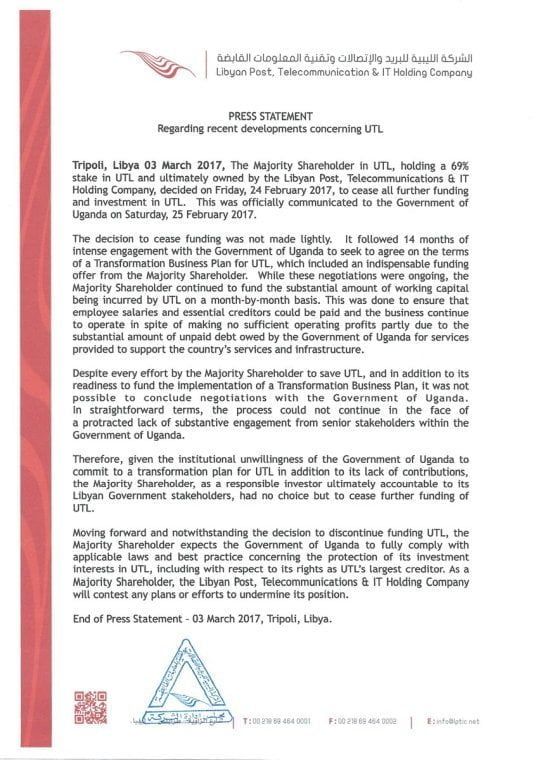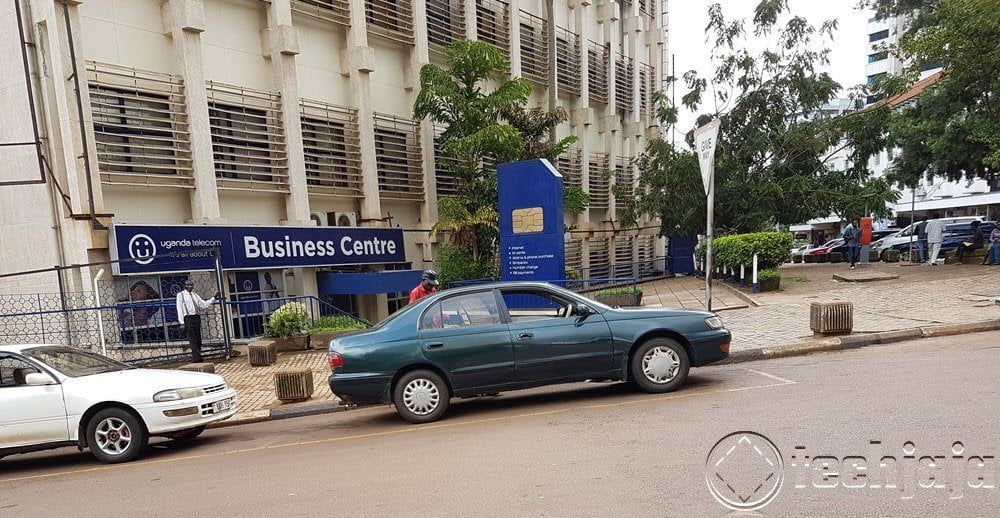When someone told you that Uganda Telecom has had it all wrong from the start, it would be quite hard to imagine. The telco, keenly referred to as ‘Mango’ two decades back, is comparable to a laughing stock – because of its status as a state-run company exhibiting the opposite in the public eye. UTL was there before the rest, but how it came to its knees, we are yet to know.
We have summed up a brief timeline of where the troubles could have started, though there is still a lot to dig up. The story begins at the start of the new millennium.
February 2000: UCOM Ltd buys 2,040,000 ordinary shares of UTL at $33.52 million from the Government of Uganda. This meant that UCOM became a majority shareholder with 51%, while the GoU became a minority shareholder with 49%. The allotment gave a lot of powers to the majority shareholder (UCOM) in making major decisions such as hiring of key managers, provision of technical assistance and borrowing loans for the company.
Between 2002 and 2006: UCOM hired 10 top managers, including the Managing Director. At time, the Managing Director received a monthly pay of $28,000 (about UGX 104 million), while the other nine managers were being paid $25,000 (UGX 92 million) each per month. The company was making losses as the team hired was inexperienced, incompetent, and lacking basic corporate management skills yet the pay was much.
2005: The shareholder agreement expires but the company continues using it without renewal.
2007: Government of Uganda agrees to add more 18% of its shares to UCOM. This meant UCOM share rose to 69% and those of the GoU reduced to 31%. This was after the government failed to raise its share of the equity when a capital call for $26.4 million was made to invest in UTL network.

March 2007: LAP GreenN, a subsidiary of Libya Africa Investment Portfolio, a company owned by the Government of Libya, acquired 69% shareholding in UTL after buying into UCOM. However, there’s no evidence in the Company Registry showing that UCOM sold its shares to LAP GreenN.
Due to political turmoil in Libya, by 2011 Ucom was unable to downstream capital to the company since it’s assets were frozen by the UN sanctions.
2007 – 2017: The company reported heavy losses despite massive borrowings. UGX 16.21bn in 2008, UGX 11.86bn in 2009, UGX 69.26bn in 2010, UGX 145.63bn in 2011, UGX 27.67bn in 2012, UGX 59.91bn in 2013 and UGX 229.51bn in 2014.
March 2017: The government revealed that the Libyan Post, Telecommunications and Information Technology Company (LPTIC), the entity that owns 69 percent of Uganda Telecom had thrown in the towel.
March 2017: UTL is placed under receivership.
May 2018: Ugandan Government puts up a revamping strategy including sourcing for competent investors, an extension of UTL’s license for 20 more years, expansion of the telecom’s spectrum as well as giving it unlimited access to the National Backbone Infrastructure.
Afrinet Communications, Mauritius Telecom, Hamilton Telecom, Telecel Global, Baylis Consortium and Teleology show interest in taking over UTL. Teleology seemed to offer the best deal.
June 2019: Investment Minister Hon. Evelyn Anite told members of Parliament that government no longer has any control of UTL Operations, with no more access to the company premises for any audits to be done.
The company administrators would, in response, call a press conference to deny all the accusations posed by the minister insisting that neither refused government from accessing UTL premises nor that the administrators denied them the right to audit the company as was alleged by the Minister.
Ms Anite replied by directing for the firing of Mr Twebaze Bemanya as the administrator of UTL, in a letter addressed to the Attorney General. The Attorney General instead blocked the removal of the administrator citing that “there are no grounds to remove the administrator of UTL from office”.


